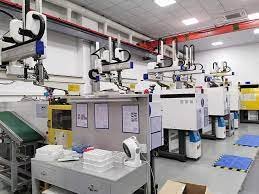Custom plastic injection molding offers immense versatility and efficiency in manufacturing various plastic components. However, the success of your injection molding project heavily depends on selecting the right materials. From durability to appearance, material selection plays a crucial role in determining the performance and quality of the final product. Here’s a comprehensive guide on how to choose the perfect materials for your Custom Plastic Injection Molding project.
Understanding Your Project Requirements
Before delving into material selection, it’s essential to thoroughly understand your project requirements. Consider factors such as the intended application, functionality, environmental conditions, regulatory standards, and budget constraints. This initial assessment will provide a clear direction in choosing materials that align with your project goals.
Key Considerations in Material Selection
- Mechanical Properties: Evaluate the mechanical properties required for your application, including tensile strength, impact resistance, stiffness, and flexibility. For instance, automotive parts may require high impact resistance, while electronic enclosures may prioritize dimensional stability.
- Chemical Resistance: Assess the compatibility of materials with chemicals, solvents, and other substances they may come into contact with during the product’s lifespan. This is crucial for applications in industries such as healthcare, automotive, and aerospace.
- Temperature Resistance: Determine the operating temperature range of your product and select materials capable of withstanding these conditions without deformation or degradation. High-temperature plastics like PEEK or Ultem are suitable for applications exposed to extreme heat.
- Appearance and Surface Finish: Consider the aesthetic requirements of your product. Some materials offer better surface finish and color options than others. Transparent materials like acrylic or polycarbonate are ideal for products where visual appeal is crucial.
- Cost and Availability: Balance the performance requirements with cost considerations. While high-performance engineering plastics offer superior properties, they may come at a higher price point. Assess the availability of materials and their impact on production lead times.
Common Materials Used in Custom Plastic Injection Molding
- Polyethylene (PE): Known for its excellent chemical resistance and low cost, PE is commonly used for packaging, containers, and consumer goods.
- Polypropylene (PP): PP offers good chemical resistance, impact strength, and flexibility, making it suitable for automotive parts, household appliances, and medical devices.
- Acrylonitrile Butadiene Styrene (ABS): ABS combines strength with good impact resistance and surface finish, making it ideal for consumer electronics, automotive interior parts, and toys.
- Polycarbonate (PC): PC offers exceptional impact resistance and optical clarity, making it suitable for automotive lenses, safety glasses, and electronic enclosures.
- Polyethylene Terephthalate (PET): PET is commonly used for packaging bottles, containers, and food-grade applications due to its transparency and recyclability.
- Nylon (Polyamide): Nylon offers high tensile strength, toughness, and chemical resistance, making it suitable for gears, bearings, and structural components.
Consulting with Material Experts
Navigating the vast array of plastic materials can be daunting, especially for complex projects. Consider consulting with material experts or partnering with experienced injection molding companies like First Mold. Their expertise can help you select the most suitable materials based on your specific requirements, ensuring optimal performance and cost-effectiveness for your project.
Conclusion
Choosing the right materials for custom plastic injection molding is a critical step in ensuring the success of your project. By understanding your project requirements, considering key factors such as mechanical properties, chemical resistance, and cost, and leveraging the expertise of material specialists, you can select materials that meet your performance goals and budget constraints. With careful consideration and strategic planning, you can achieve exceptional results in your injection molding endeavors.
For more information on custom plastic injection molding services, visit First Mold’s website.
